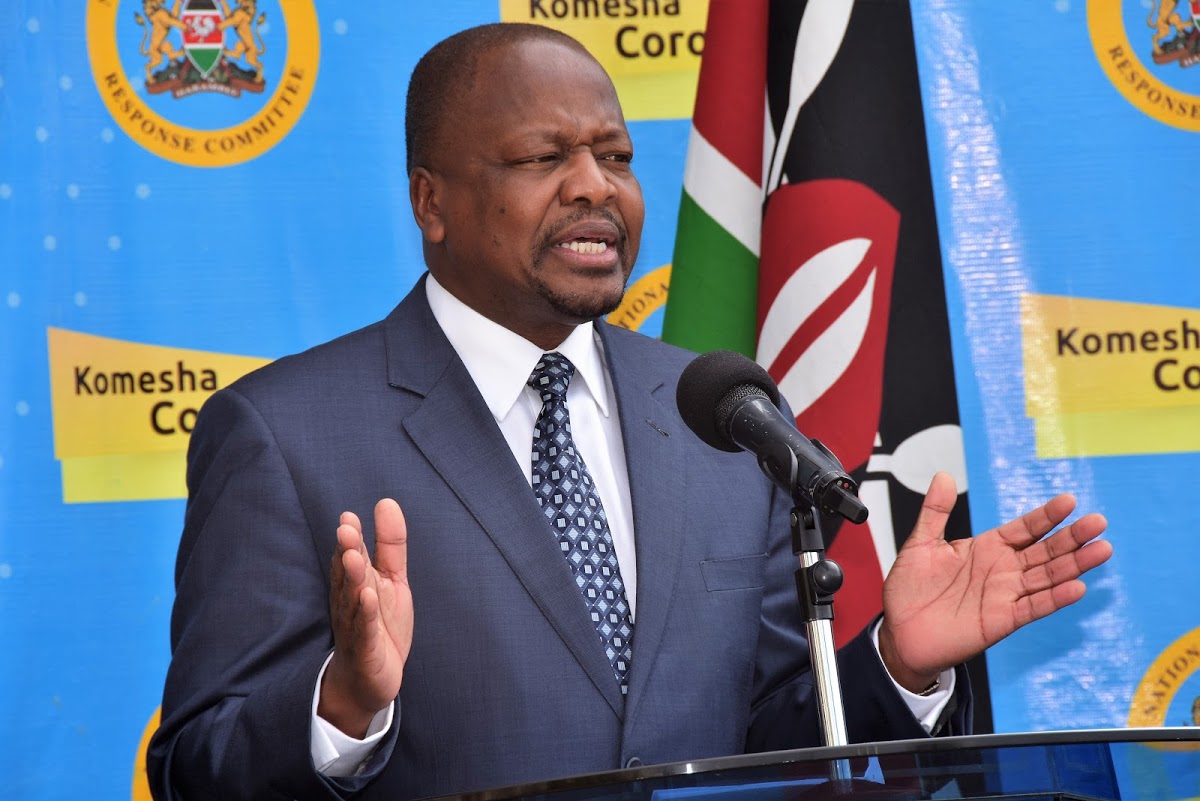CS allays lockdown fears despite soaring infections

The Covid-19 positivity rate went up to an unprecedented 24.4 per cent, raising fears the country could be rolling back gains in the fight against the virus.
Yesterday’s positivity rate was an increase from the 23 per cent registered on Saturday.
The daily report released by Health Cabinet Secretary Mutahi Kagwe shows 1,372 people tested positive for the disease, from a sample size of 5,635 tested in the last 24 hours.
This was a huge rise from last week when the positivity rate was at a low of between two and five per cent.
Sharp rise in infections was attributed to Omicron variant, which was detected in the country last week after three travellers from South Africa, two Kenyans and one South African, tested positive for the new strain.
Kagwe has, however, ruled out the possibility of the government enforcing a lockdown in the country, citing advice from experts.
“Epidemiologists have said a lockdown is not the way to go,” he said even as Kenyans complained of a new strain of common flu characterised by a severe headache, fever, running nose and sore throat.
New variant
“We are happy that the handling of the variant is now being managed in a better way. For instance, some countries have lifted bans and red lists that they had placed on other nations reporting the variant,” he added.
The CS said there is evidence that the new variant has a much lower level of attack on fully vaccinated people and urged Kenyans to take the jab to minimise the risks.
“If you are not vaccinated you are likely to get sick faster than if you are. You are going to get hospitalised, spend money that you do not necessarily need to spend. You will impoverish yourself with huge bills that you do not need to incur,” he advised.
On Saturday, the ministry announced the infections rose above the 2,000-mark, further confirming 27 sequences belonging to the Omicron variant.
“I confirm that between November 23 and December 7, we have identified nine lineages circulating in Kenya from a sample size of 34,” Kagwe said in a report.
He explained that only the first two individuals with the Omicron variant had a travel history from South Africa and Ghana, while the rest had no recent international travel history thus suggesting community transmission.
From yesterday’s cases, 1,260 are Kenyans while 112 are foreigners. 699 are females and 673 males. The youngest is a five-month-old child while the oldest is 90 years.
Ministry data shows 8.8 million Kenyans have been vaccinated against the disease. “ Of these, 5,288,176 were partially vaccinated while those fully vaccinated were 3,572,863.
Uptake of the second dose was at 56.3 per cent. Proportion of adults fully vaccinated was 13.1 per cent,” he added. Nairobi county is in the lead with 31.6 per cent of the population fully vaccinated followed by Nyeri at 27.5 per cent, Laikipia (21.3) and Kiambu (20.5).
The proportion of persons above 18 years who have received at least one dose of Covid-19 vaccine (A dose of J&J and first dose of other vaccines) as at Saturday, December 18. Some 278 patients are currently admitted in various health facilities countrywide, while 4,996 are under the Home-Based Isolation and Care programme.
Fourteen patients are in the Intensive Care Unit. Another 64 patients are on supplemental oxygen, with 60 in the general wards. Four patients are in the High Dependency Unit.
The ministry also said 30 patients recovered from the disease, out of which 17 were from the Home-Based Isolation and Care programme while 13 were discharged from various hospitals countrywide. Total recoveries stand at 249,222.
Total recoveries
No death was recorded in the last 24 hours; cumulative fatalities still stand at 5,353. Elsewhere, members of the Civil Society now want to be part of the newly formed Kenya Biovax Institute Board to monitor the import, production and use of Covid-19 vaccines.
While terming the move as long overdue, they expressed their concern over the shelf-life of some of the donated doses by donors and development partners.
This came as the group under Coalition for Health Research and Development supported calls to have the country produce its own vaccines.
They noted that the pandemic had taught the country that overreliance on donations could lead to massive loss of lives as the donor-countries had to first satisfy their needs.
Mary Ng’ethe, a member of the coalition, said there were fears that the Africa could be turned into a dumping site for vaccines that were about to expire.
“We welcome donations from international organisations but the vaccine should be subjected to tests to ensure they are active and have a three-month shelve line,” she said.












